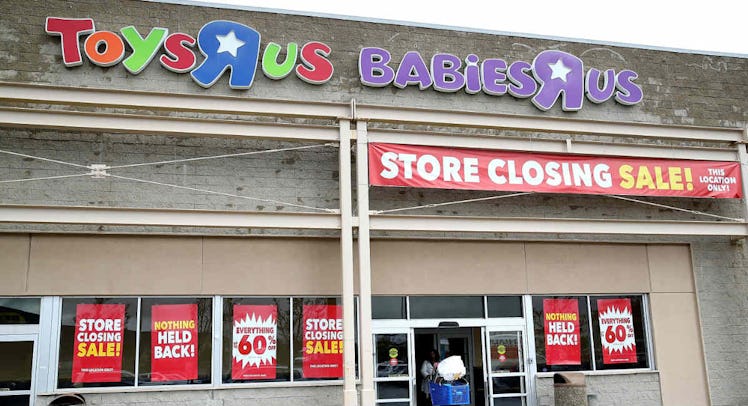As Toys ‘R’ Us Closes U.S. Shops, Toy Brands Scramble
The closure will likely push a lot of brands further into online retailing.

As Toys ‘R’ Us – one of the toy industry’s biggest and most famous distributors – begins the process of closing down all of its U.S. stores, toy companies are in panic mode over the future of sales. Though Toys ‘R’ Us has suggested that it might fuse its 200 most profitable stores with their Canadian operations, it still plans an imminent liquidation of assets in the U.S. market. This has, rightfully, spooked toy brands.
According to the LA Times, Stephanie Wissink – of the investment firm Jefferies – said in a Thursday note to clients that the Toys ‘R’ Us closure will “cause meaningful product-flow disruption.” Wissink went on to explain that most of the Toys ‘R’ Us sales will now come from online markets like Amazon, or from physical retailers like Walmart and Target.
Companies like Target have been developing this kind of relationship with toy manufacturers for years, so this shouldn’t be too much of a change. However, retailers like Kohl’s and JCPenney, who historically are not big spenders in toy distribution, will be stepping into the ring to try and arrange new distribution deals with frantic toy manufacturers.
The same LA Times report suggests that the vacuum left by Toys ‘R’ Us might cause some toy manufacturers to merge together. It’s long been speculated that Mattel, Pawtucket, and Hasbro might be working towards a game-changing merger, and the disappearance of Toys ‘R’ Us might be just enough to make that happen.
Even if the three companies decided not to merge, their legacy brands will keep them competitive. Hasbro, for example, handles Star Wars toys, and the demand for those will not be going away. For their part, Mattel made almost a billion dollars last year, just off of Barbie dolls.
This article was originally published on